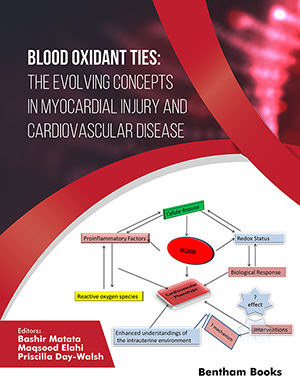Abstract
The generation of certain species of biomolecules described as reactive oxidant species (ROS e.g., superoxide, O2 -; hydrogen peroxide, H2O2; hydroxyl radicals (OH.)) and reactive nitrogen species (RNS e.g., peroxynitrite, OONO-; nitric oxide, •NO) is a critical step in health and disease . These species play critical roles in cell defences in both animals, and plants. They also perform an important function in the regulation of key cellular signalling pathways such as cell differentiation, proliferation, migration, and apoptosis (commonly described as redox signalling pathways). The imbalance between the levels of ROS and RNS generated to that of antioxidant species may lead to oxidative stress and biomolecular damage, especially in situations where the latter are depleted. Redox biology and oxidative stress are particularly important in ischaemia-reperfusion associated diseases in particular the pathogenesis of cardiovascular disease (CVD). CVD is a major cause of mortality on a global scale, although the exact mechanisms underlying the pathological process are not fully understood. It is believed that ROS play a pivotal role in the progression of CVD. In particular, recent evidence suggests that the development of atherosclerosis is modulated by ROS and influenced by other factors such as inflammatory responses, disturbed blood flow, and arterial wall remodelling. This chapter provides an overview of the pathways of oxidative stress and redox-regulated signalling underlying the genesis and progression of cardiovascular disease.
Keywords: Cardiovascular disease, Oxidative stress, Redox signalling pathways, Reactive nitrogen species, Reactive oxygen species.






















